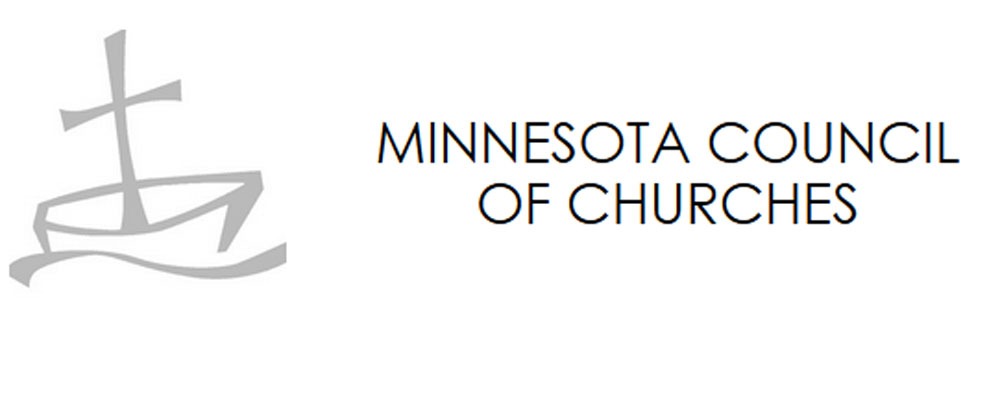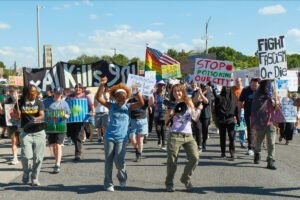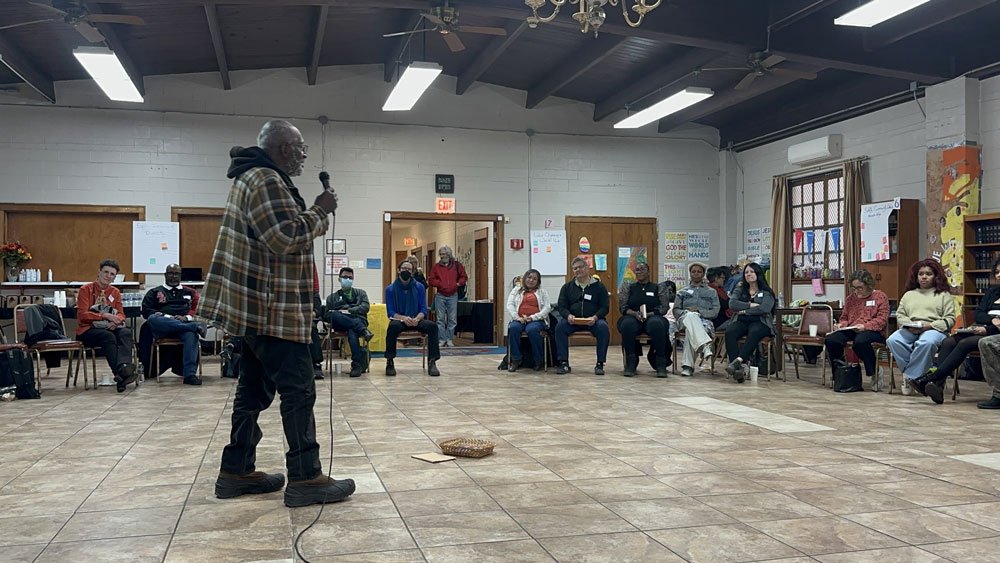 December 13, 2020; PBS NewsHour
December 13, 2020; PBS NewsHour
For a growing number of churches, it is no longer enough to recognize racism and see it as part of history to be condemned. They are coming to recognize that what’s needed is action. Actual reparations are necessary to heal the ongoing harm our nation’s bigotry and brutality continue to cause.
The Minnesota Council of Churches, an organization that brings together the leaders of 25 separate denominations, recently committed itself to a three-point, 10-year action plan under the banner of “Dismantling the Structures and Repairing the Damage of Racism in Minnesota.” After living through the murder of George Floyd on their state’s streets, they concluded that joining protests and speaking out were no longer sufficient. As the Council’s CEO, the Rev. Curtiss DeYoung, explained to PBS NewsHour, “This particular event, because it was right here where we live, was a call to action. The first thing that we did, of course, like everyone else, was get into the streets and march…but there are deep, historic issues that require more than marching.”
Rev. Stacey Smith, presiding elder of St. Peter’s African Methodist Episcopal Church in Minnesota, underscores the importance of ceasing to paper over the past: “Truth-telling in our stories is so important. There has been such a vacuum of missing stories, not only from Black and brown people but our Indigenous people and others as well.”
New York’s Episcopal Bishop Andrew Dietsche concurs. “We are complicit,” he says. “In 1860, on the eve of the Civil War, delegates at the diocese’s convention refused to approve a resolution condemning slavery. We have a great deal to answer for,” including “some churches’ use of slaves as parish servants.”
But the Minnesota Council recognizes racism is about more than the legacy of slavery. In the preamble to their action plan, they recognize that “the genocide of and stealing of land from the Indigenous population combined with the arrival of enslaved Africans as uncompensated labor made racism and White supremacy core to the way of life in what would become the United States of America. The complicity of Christian faith communities further stamped on the nation the imprint of a sinful dehumanization. The State of Minnesota was born out of this blueprint.”
Sign up for our free newsletters
Subscribe to NPQ's newsletters to have our top stories delivered directly to your inbox.
By signing up, you agree to our privacy policy and terms of use, and to receive messages from NPQ and our partners.
For the Rev. Jim Bear Jacobs, a Native American who is the church council’s director of racial justice, recognizing all of history is critical:
For so long these have been two separate camps—Indigenous people and African Americans felt they are competing against each other for the same limited resources. By bringing these two communities together, it removes that mindset of, “We have to get ours, and that might mean you don’t get yours.”
Recognizing truth from multiple perspectives and learning the skills needed to speak across cultural divides are just first steps. From those who have been the beneficiaries of slavery and oppression must come acts that “reinvest…in institutions and programs that improve community physical, social, economic, and spiritual well-being.”
The Minnesota Council aims for each affiliated congregation, according to DeYoung, to budget funds as reparations in the form of an ongoing “line in their budget, like they do for building maintenance. If all the churches do is take up a special offering, there’s no shift in the power dynamics that created these problems in the first place.” The specific use of these funds will be determined as each congregation builds relationships across the cultural divide.
Reparations like these must be a commitment, not just a matter of debate. As the Episcopal Bishop of Maryland, Eugene Sutton, says, “We may not all be guilty, but we all have a responsibility.” The $1 million reparations fund in his diocese is “going to cost us,” he says, but “we’ve done that in recognition of the fact that this church, as well as many other churches and institutions, benefited from theft. We stole from the impoverished, from the African American community.”
Organizations are recognizing that they must, as, NPQ recently noted, undertake “the difficult but necessary process of healing and restoring dignity and fundamental human rights” before they are ready to take restorative actions. The impact of each congregation, of each local coalition of religious groups, is small. Against the trillions of dollars that scholars like William Derry estimate as the full amount owed to those whose lives have been harmed by our nation’s historic racism, they may seem insignificant. Yet, as the list of organizations, churches, universities, and governments committing paying this way past due bill grows, the national debate will become easier and more mainstream. As the list gets longer, the national tipping point gets closer.—Martin Levine











